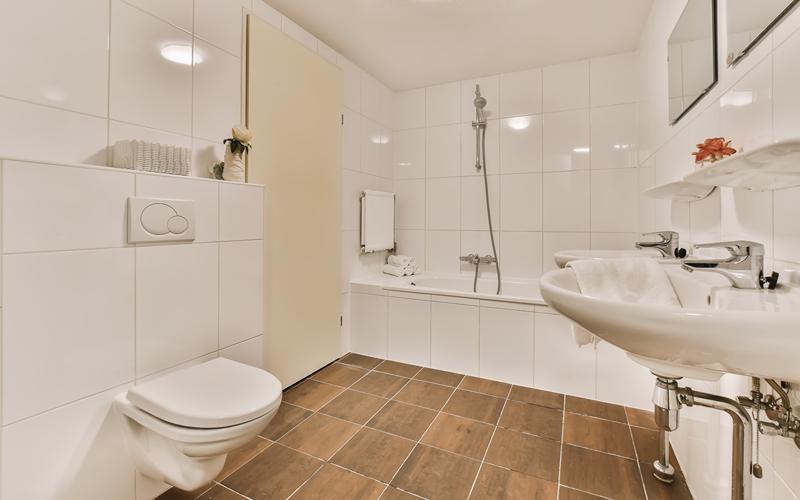Grouting in Singapore: A Homeowner’s Guide to Longer-Lasting Tiles

Tiles are a popular choice for flooring and walls in many homes because of their durability and ease of maintenance. However, their performance and longevity depend heavily on proper grout application. Grouting is crucial in keeping tiles stable, preventing water seepage, and ensuring a neat appearance. Homeowners who overlook this essential step often face issues such as loose tiles, mould growth, or cracks. Knowing the importance of grouting in Singapore helps homeowners make better decisions when renovating or maintaining their homes.
The Role of Grout in Tile Installation
Grout provides structural support to tiles by locking them in place and distributing weight evenly across the surface. This stabilisation prevents tiles from shifting over time, which can cause uneven floors or wall surfaces. In high-traffic areas such as kitchens, bathrooms, and living rooms, grout ensures that the tiled surfaces withstand daily wear and tear. Grout also acts as a protective barrier, as it seals the joints between tiles, preventing dirt, dust, and moisture from penetrating into the substrate.
For homeowners, grout is especially important in avoiding water damage. Bathrooms and kitchens are prone to moisture exposure, and without proper grouting, water can seep into the underlying layers. This may weaken the adhesive and compromise the tiles’ durability. Properly applied grout reduces this risk and ensures that tiled areas remain functional and visually appealing for years.
Types of Grouting Options Available
When choosing grouting in Singapore, homeowners have access to several options, each suited for specific needs. Cement-based grout is commonly used in residential projects. It is affordable, easy to apply, and works well in areas with low to moderate moisture exposure. For bathrooms or kitchens, epoxy grout is a preferred choice as it is highly resistant to water, stains, and chemicals. Though more expensive, its durability makes it a strong option for high-humidity environments.
Sanded and unsanded grouts are other variations to consider. Sanded grout contains fine sand particles that add strength, making it ideal for wider tile joints. Unsanded grout, on the other hand, is smoother and better suited for narrow joints or delicate tile surfaces. By understanding the characteristics of each grout type, homeowners can select the most suitable option that balances both functionality and aesthetics.
Common Problems Without Proper Grouting
Neglecting grouting or using poor-quality materials can lead to long-term problems. One of the most common issues is water seepage, which can cause tiles to loosen or detach over time. Mould growth is another concern, particularly in damp areas like bathrooms. Once mould penetrates grout lines, it becomes difficult to remove and can affect both hygiene and appearance. Cracks in grout are also common if the wrong type is used for the environment, compromising the stability of the tiles.
These issues not only affect the look of the home but also create costly repairs. Replacing loose tiles or reapplying grout requires time and additional expense. Homeowners who invest in proper grouting during installation save themselves from these problems, ensuring their tiled spaces remain durable and low-maintenance.
Tips for Maintaining Grout at Home
Once grout is applied, regular maintenance is necessary to preserve its effectiveness. Homeowners should clean tiled surfaces regularly with mild cleaners to prevent dirt build-up. Avoiding harsh chemicals is essential, as they can damage grout lines over time. Applying a grout sealer is another effective way to protect against moisture and stains, especially in areas exposed to water.
It is also crucial to inspect grout lines periodically for signs of cracking or discolouration. Addressing minor issues early prevents them from becoming major problems. Re-grouting sections that show wear ensures that the tiles remain intact and functional. With proper care, grout can last for many years, supporting the overall durability of tiled surfaces.
Conclusion
Grouting in Singapore is a crucial component that enhances durability, prevents water damage, and supports the structure of tiled surfaces. Homeowners must carefully choose the right type of grout and ensure proper application to avoid long-term issues. Regular maintenance further extends the lifespan of tiles, making grouting an investment in both function and appearance. By understanding its role and taking simple steps to maintain it, homeowners can enjoy tiled surfaces that remain reliable and visually pleasing for years.
Protect your home with expert grouting solutions. Contact Grout Pro-Tech for reliable and lasting results.














